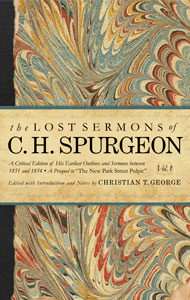 |
 |
 |
 |
Engaging with Jewish People: Understanding Their World Sharing Good News by Randy Newman (The Good Book Company 2016, $11.99)
Review by Annie Corser
In Engaging with Jewish People, Randy Newman tackles the challenge of sharing the gospel with Jewish people. Raised in a Jewish family, Newman outlines who Jewish people are, pieces of their history, and what they believe.
The book is a solid starting point for Christians to begin thinking through how to engage Jewish people. Many are resistant to Jesus and to Christians. After listing a few basics about Jewish culture, Newman writes that prayer is the “most important aspect of evangelism.” He reminds believers that without prayer, Christians may think salvation depends on them.
Newman encourages believers to remember that God has not forsaken the Jewish people when he writes, “There will be many Jewish believers in the Messiah in the crowd who gather around the Lion of the tribe of Judah, singing his praise forever.”
A Syntax Guide for Readers of the Greek New Testament by Charles Lee Irons (Kregel 2016, $39.99)
Review By S. Craig Sanders
If you’ve used a Reader’s Greek New Testament, then you know you’ll often still need help with syntax and translation. Charles Lee Irons’ Syntax Guide is an essential tool to keep you reading and prevent the interruption that would arise for you to track down a bulky syntax work. Irons’ resource provides verse-by-verse analysis of the New Testament, analyzing key syntactical issues and offering translation glosses, in addition to cross-references to other passages in the NT and Septuagint.
“One of my aims in creating this Syntax Guide is to encourage students, pastors, and others to devote themselves to reading large portions of the Greek New Testament and, ideally, all of it,” Irons writes.
This sturdy and compact volume is a must-have addition to your library, especially if you commit to reading and translating the Greek New Testament on a daily basis.
Among Wolves: Disciple-Making in the City by Dhati Lewis (B&H 2017, $15.99)
Review by Andrew J.W. Smith
As the world’s population continues to move into cities and exhibit dramatic racial and cultural diversity, the church must prioritize making disciples, writes Dhati Lewis, lead pastor of Blueprint Church in Atlanta, Georgia, in Among Wolves: Disciple-Making in the City.
With both population diversity and density in urban areas increasing, the church must raise and guide indigenous leaders from within cities to lead the people of God, much like missionaries and church planters in foreign countries, Lewis writes. Using the Gospel of Matthew as a guide, Lewis walks the reader through eight “movements” of Matthew, from calling to teaching to sending.
“Christianity is simple in its message, but supernatural in its application,” Lewis writes. “The reason it’s hard to live authentically Christian in the urban context is because we are called to supernaturally love those who don’t look like us, talk like us, or act like us.”
The Lost Sermons of C.H. Spurgeon: His Earliest Outlines and Sermons Between 1851 and 1854 Edited by Christian T. George (B&H Academic 2017, $59.99)
Review by S. Craig Sanders
In the first of a 12-volume set, The Lost Sermons of C.H. Spurgeon features a series of Charles Haddon Spurgeon’s early sermon notebooks he first attempted to print in 1857 but were since lost to publishing history. Spurgeon scholar Christian T. George notes in his editor’s preface the great irony that, though Southern Baptists largely opposed Spurgeon during that time due to his anti-slavery stance, the publication of this project finally comes to fruition at a Southern Baptist publication house.
“Charles Spurgeon has come to America,” George writes in the series preface. “Through the rotations of a thousand gears of grace, his early sermons have spanned a century and a sea to be read by new audiences. … Future historians will be right to see the publication of his Lost Sermons as belonging to an extraordinary and unexpected narrative of redemption.”
Readers won’t find full sermon manuscripts, but when completed the collection will add 10 percent of literature to Spurgeon’s canon, according to George. Each of the 76 sermons contained in this volume feature a facsimile of the notebook page with the text reprinted on the facing page. While Spurgeon wrote only sermon titles, Scripture text, and sermon outlines in his notebook, George adds footnotes that explains the sermon’s relationship to Spurgeon’s theology and his 19th-century setting.
The beautiful hardcover edition captures the gem found inside of Spurgeon’s early work, never before available to the public. Even more valuable are George’s introductory essays, describing the common traits of the notebook’s sermons and exploring the young preacher who began his remarkable ministry at 16. It’s a steep price, but a worthy investment for the pastor and student indebted to Spurgeon’s rich preaching.




